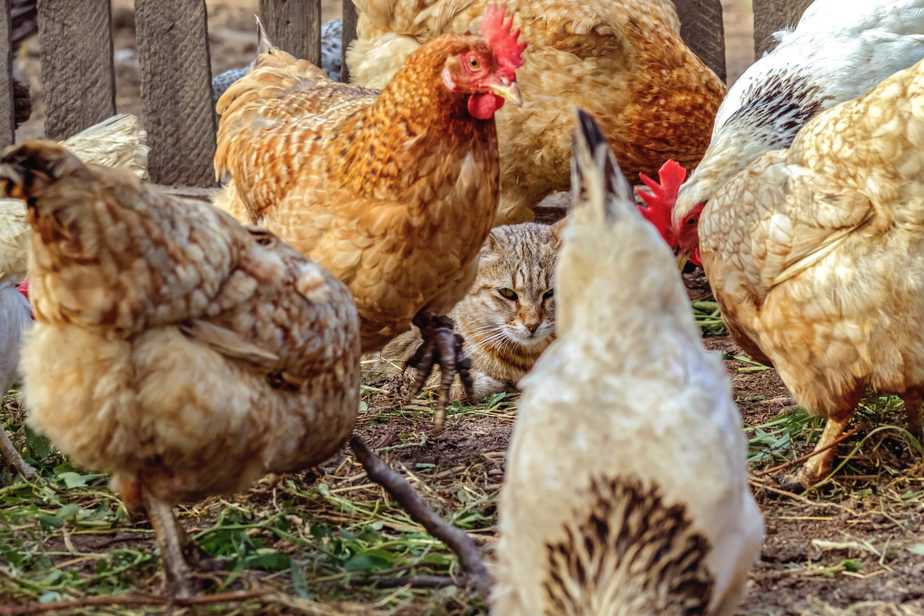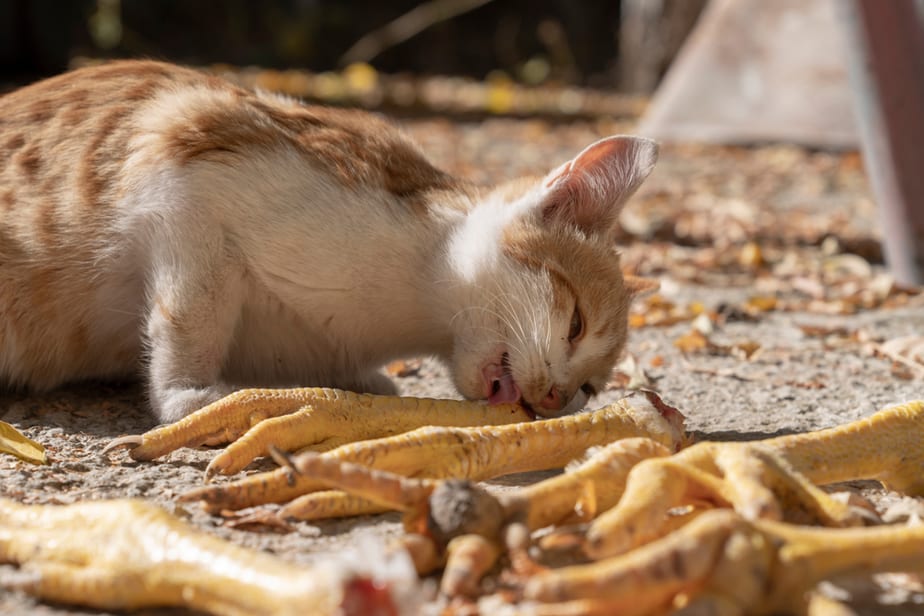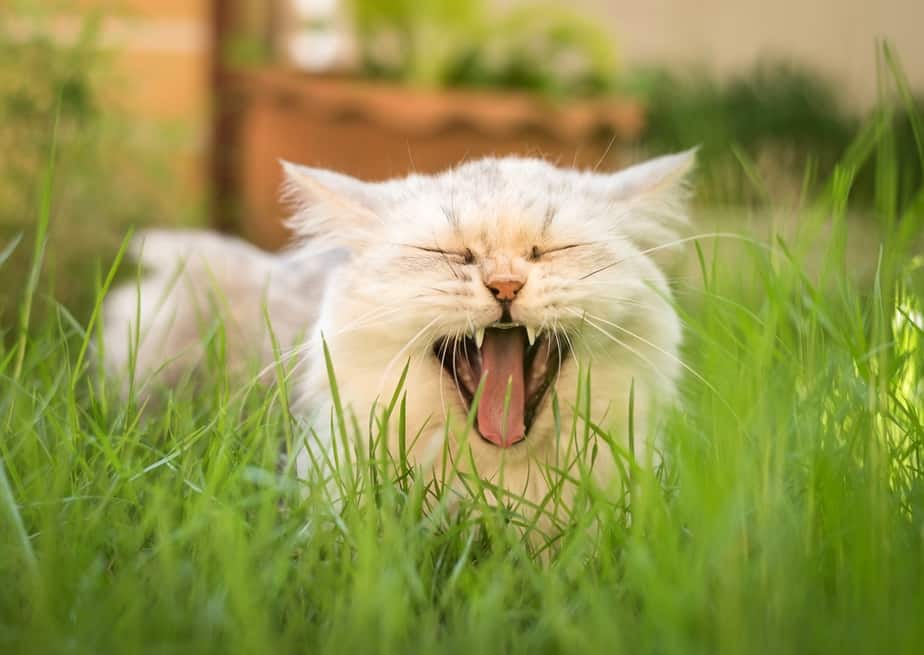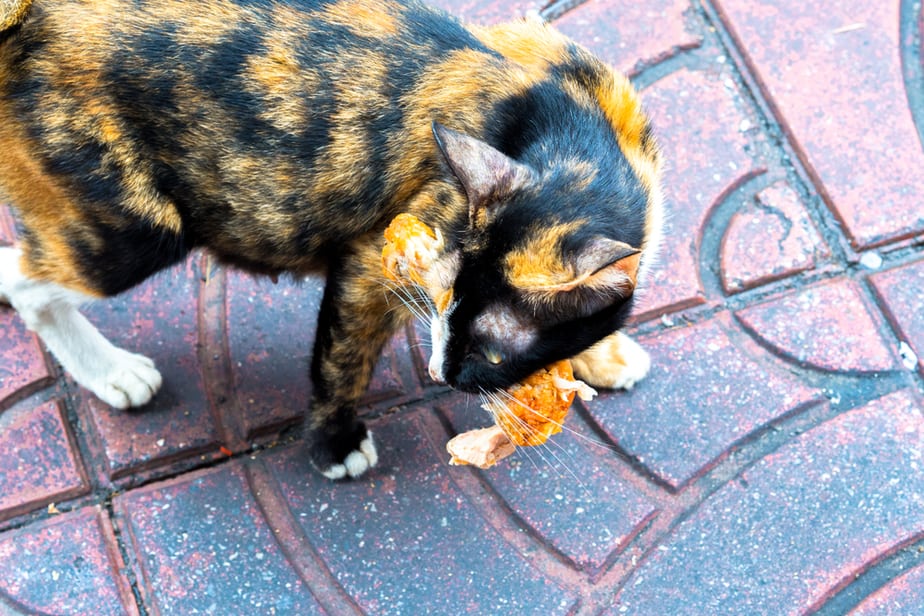📖 Table of Content:
It’s no secret that cats just love their meat! In fact, they can’t live without it. Poultry is popular on the market and is high on the list of your pet’s wishes. This protein-rich food attracts felines like magnets. Speaking of their love for poultry, especially chicken, can cats eat chicken feet?
This is a delicacy in many cuisines like Chinese, Indian, and Mexican. To some people, it isn’t as appealing, but each to their own, right? When it comes to cats, they sure won’t be turning down the offer of these meaty treats!
Are chicken feet bad for cats?
As for every food, there are pros and cons when it comes to cats eating chicken feet. They aren’t as high in nutrients as muscle, but can offer several benefits to felines. Chicken feet are scarce on the meat and consist mainly of skin, tendons, bones, and tissue.
Be that as it may, your furkid will be delighted with this occasional treat!
There are a wide variety of ways to eat chicken feet, be it a snack, the star ingredient, or even in soup. And if you’re not a soup person, you can have some deep-fried or steamed chicken feet!
More good news is that you can combine this food with various sauces such as soy sauce or even sugar! Other seasonings include rice vinegar, chili, garlic, and others.
Cats are finicky eaters and will beat around the bush before indulging in new foods. It may take some persuasion, but patience is the key! Cats can eat chicken feet, but should they?
Health benefits of chicken feet
We know these aren’t as nutritious as the muscles of the chicken, but you’ll be surprised with some of the health benefits chicken feet contain. Just remember that it’s best to feed them on occasion, as a snack!
They don’t have high nutritional value and are low in protein. Although this is somewhat bad news, they’re rich in certain supplements.
1. Promotes joint health
Glucosamine and chondroitin are health supplements found in chicken feet. These are responsible for maintaining joint health and have an overall positive impact on your cat’s mobility.
These substances can help lessen the pain caused by arthritis in felines. There are many treats and meds for cats that suffer from arthritis with high amounts of glucosamine.
If feeding chicken feet to your pet, don’t worry about glucosamine levels! Chicken feet have roughly about 900 mg of glucosamine and it’s a natural source of these health supplements.
Together with glucosamine, chondroitin is a building block of connective tissue and cartilage. Moreover, chicken feet are a rich source of collagen, a protein that’s important for strengthening the bones and muscles. Collagen is especially beneficial to older cats, helping to slow down cartilage and bone loss, as well as reduce joint pain.
2. Improves skin and coat health
Thanks to collagen levels found in chicken feet, your cat’s fur may shine brighter than your future! Jokes aside, collagen takes care of not only that majestic fluff, but the skin that’s hidden underneath it all.
It helps keep the skin hydrated which gives it elasticity and prevents wrinkling and cellulite. Thinking about some chicken feet now, aren’t you?
3. Keeps the razors working!
How do you know someone’s a cat owner? If they roll up the sleeves of their shirts, you’ll know! Those scratch marks and love bites are what give every cat owner away.
Felines have naturally sharp teeth to chew down on the flesh of their prey. What helps them keep their teeth sharp and healthy are treats that they chew on. That way, your pet’s brushing her teeth. Although it’s not as fancy as using an actual brush and toothpaste, it’s effective!
When munching down on some chicken feet, cats can get rid of the build-up and plaque on their teeth. Proper dental care ensures no bad breath or room for infections and diseases!
Can cats eat chicken feet? What could go wrong?
There’s no bad without good and vice versa. Even though we sometimes don’t want it to be true, we still find some downsides to the good things. In this case, chicken feet can be a choking hazard to felines.
If your furchild is a guzzler, make sure to chop up the chicken feet into smaller pieces. Because they are full of bones, chicken feet can easily get stuck in your cat’s throat. Furthermore, bones can create a blockage and in some extreme cases, require removal by surgery!
Chicken bones, especially cooked bones, are sharp and can easily splinter. This is dangerous for your cat’s throat and mouth. Just like fish bones, chicken bones are better given uncooked (although this also carries a risk, but more on that later).
Besides, chicken feet come with certain sauces and seasonings that can be quite detrimental to your cat’s health. Garlic is a threat because it’s highly poisonous to felines. And while soy sauce can be tolerated in small amounts, there’s still a risk of sodium toxicity.
High fat content
If you’re a fan of deep-fried food, you’ll love chicken feet. However, we know deep-fried foods are unhealthy and this dish is no exception. When it comes to cats, it isn’t recommendable for them to feast on foods high in oils.
Trans-fatty acids – harmful, unsaturated lipids linked to heart disease – are abundant in deep-fried foods like chicken feet. These may raise inflammatory indicators, cholesterol, and triglycerides, among other things.
This increases your feline’s chances of developing atherosclerosis, which is the plaque buildup in veins. Also, your cat could become more prone to having a heart attack.
Can cats eat raw chicken feet?
Cooking meat breaks down the fibers and connective tissues, making it simpler to chew and digest. Raw chicken feet are not recommended for domesticated cats in any form because germs such as salmonella and E. coli can be present.
If you correctly cook chicken feet, your cat will be safe from harmful parasites and bacteria. Although a few bites of raw, uncooked chicken feet won’t hurt your cat, it’s better to be cautious than sorry.
Note that cooking chicken feet makes it easier for your furchild to chew on them, but remember what we said earlier about the bones. Cooked bones are easier to snap and are a greater choking hazard. So, your cat can technically eat chicken feet, but if they are first deboned.
Related post: Can Cats Eat Chicken Wings? The Joys This Treat Brings!
In conclusion
After reading this article, you’ll get an answer to the ultimate question, “Can cats eat chicken feet?”. Once again, this delicacy is safe for your pet in moderation. Unseasoned, cooked, deboned chicken feet are safe and a great source of collagen and other healthy nutrients.
They are also a great substitute for treats supplemented with glucosamine and chondroitin. This helps improve your cat’s skin, bones, and teeth! Just be cautious of the bones of chicken feet as they are a choking risk when cooked, and a disease risk when raw.
Seasonings and sauces like garlic and soy sauce are a common addition to this dish. Make sure your pet doesn’t get consume these as they can be extremely harmful. Garlic – even in small amounts – is highly toxic to felines. And the salt content in soy sauce makes your cat vulnerable to sodium toxicity.
Keep your kitty’s health your main priority!
Related post: Can Cats Eat Chicken Gizzards? Is It Good For My Kitto?




